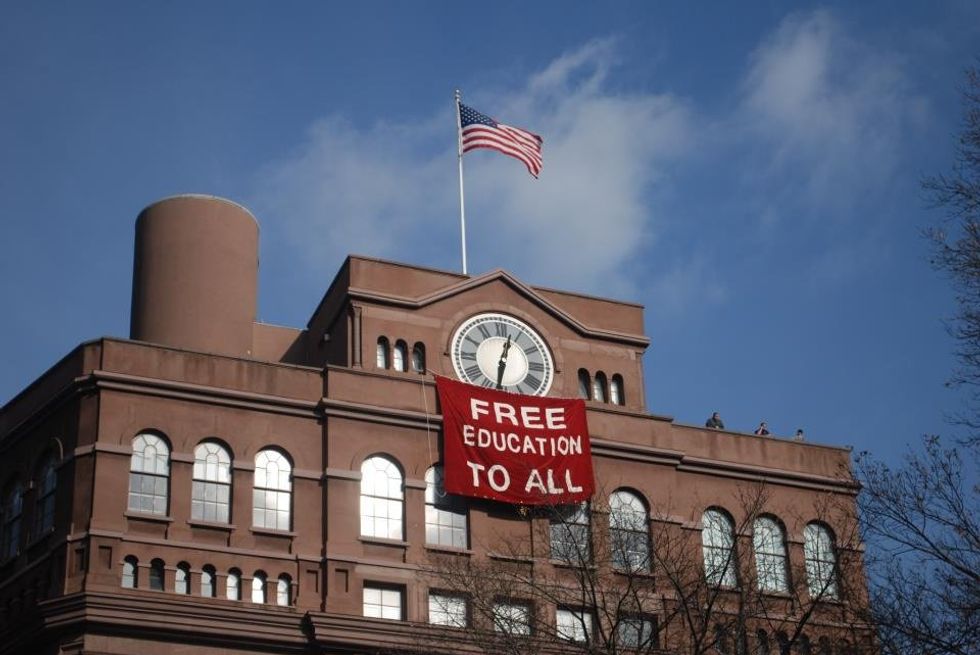Recently, there has been a large push to make two-year community college free in the United States. This idea began to gain significant attention when President Obama proposed a plan to implement free community college in the 2015 State of the Union address. Since then, crowds, made primarily of college students, have been garnering support and accelerating the movement to implement this policy. The movement is demanding three key features to their plan: free public community college, cancellation of student debt, and a $15 per hour minimum wage.
As a college student, I empathize with the cause. My college tuition is exorbitant, and I’d love to see that number come down. But I cannot join the rank and file demanding that the government help subsidize college tuition. For years, government involvement in higher education has elevated tuition costs. If the free-college movement’s goal is genuinely to see tuition costs reduced, then it ought to advocate for less government involvement, not more.
Over the past few decades, the federal government has poured more and more money into the higher education system. Each year, the government gives more money in scholarships, grants, and loans. While these are popular programs because they seem to help students afford the cost of college, they are pushing tuition costs higher and higher. The more money that students receive in scholarship and loans, the less money that universities get in tuition. This reduces universities’ revenue. In order to make up the difference, universities are forced to raise tuition.
It’s important to note that though tuition is rising exponentially, actual costs students pay aren’t rising at the same rate. In a recent anonymous poll in one of my classes, the teacher asked how much, as a percentage of tuition, each student paid to attend college. Not a single student in the class was paying 100 percent. Actual costs of college are not increasing as fast as tuition. In fact, actual costs that students pay for college are keeping pace with inflation. So why is there so much tension over this issue?
While looking at actual costs provides a compelling argument that tuition should not be adjusted at all, actual costs fail to tell everyone’s story. Actual costs' averages include all the students receiving big scholarship money. The movement pushing for free college argues that not only the elite students who can win scholarships deserve the right to college – and they have a point. This is America after all, and it’s ingrained in our red, white, and blue DNA that the common person can achieve great things – the average student should be able to go to college.
So how do we bring college tuition down? The government, at minimum, must cap funds where they are right now but ought to begin reducing scholarship and grant money. Scholarships will stop eating into university revenues, so tuition will stabilize. With less scholarship funding, universities will find new ways to compete. Instead of offering the bigger scholarship to attract students, universities will offer employment opportunities, locale, and inevitably, a lower price. As prices fall, more students will attend college. With more students, universities will receive an increase in revenue, which will allow them to reinvest in the school or drop prices further to attract more students. This cycle will bring tuitions into ranges far cheaper than the past decade has seen.
The government does lose something if it stops funding universities with scholarships. It loses control and sway over university policy and curriculum because it gives up its monetary leverage. But America will benefit from a government relinquishing of higher education. Tuition will come down, and more students will enroll in colleges. This will result in a better-educated populace, which ought to result in a better overall economy 10, 20, and 30 years down the road.
College tuition is a problem. And when America has problems, its instinctive reaction is to run to the government and demand that it fixes them. But if America really wants to fix the problem of high college tuition, it must do the opposite: it must demand that the government stop causing it.





















